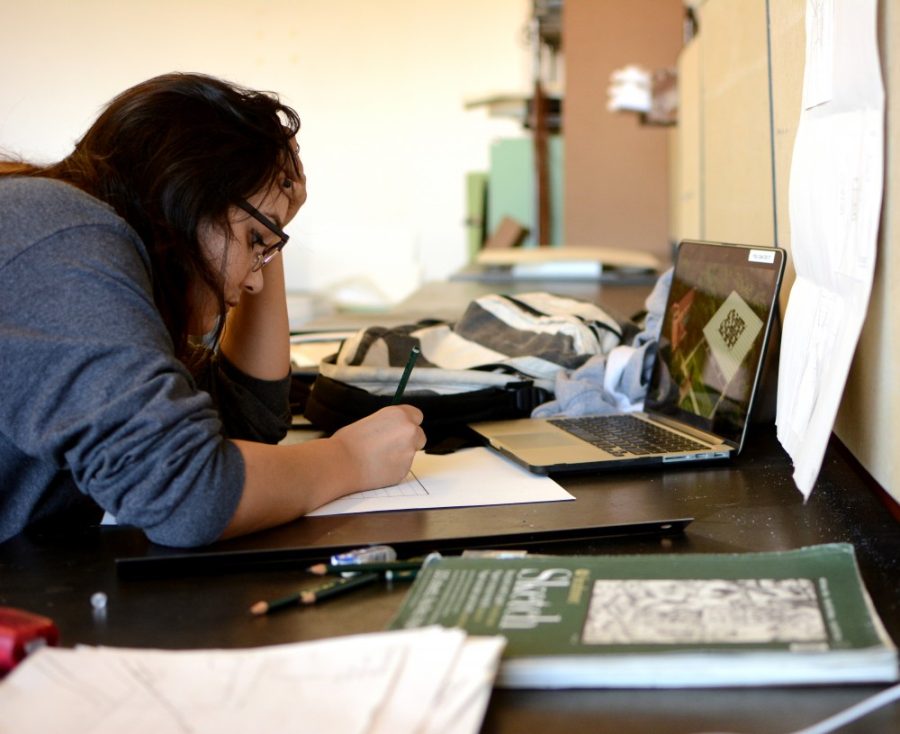Lack of sleep will make you as hungry as smoking marijuana, according to new research.
The study, published in the journal SLEEP, was led by Dr. Erin Hanlon of the University of Chicago. She and her team discovered a relationship between lack of sleep and “the munchies,” or food cravings marijuana users often face after smoking.
Fourteen healthy, non-obese subjects were recruited and underwent four nights of either healthy sleep or sleep deprivation. After, they were given meals, as well as access to “palatable, rewarding snacks” such as chips, cookies or candy.
They found that those in the sleep deprived group not only admitted to feeling hungrier, but actually consumed over 50 percent more calories than those who got a good night’s sleep.
In fact, the group actually ended up consuming twice as much fat and protein as those who slept well.
In an official press release, Hanlon stated that this type of behavior increased because of the sleeping patterns.
“We found that sleep restriction boosts a signal that may increase the hedonic aspect of food intake, the pleasure and satisfaction gained from eating,” Hanlon said. “Sleep restriction seems to augment the endocannabinoid system, the same system targeted by the active ingredient of marijuana, to enhance the desire for food intake.”
In this case, the chemical involved in the endocannabinoid system, endocannabinoid 2-arachidonoylglycerol, better known as 2-AG, was found to be produced in higher quantities in those who were sleep deprived.
The study found levels of 2-AG of those who were sleep deprived to be 33 percent higher than those who were well rested, suggesting a possible mechanism for the greater pleasure those who were sleep deprived felt while eating.
Hanlon also addressed the argument that those who are sleep deprived simply need more energy by illustrating that a subject needs 17 calories for each hour of wakefulness.
However, the sleep deprived subjects in the study ate more than 300 additional calories, which can lead to eventual weight gain, according to Hanlon.
As college students, this issue becomes increasingly relevant given the nature of students’ sleeping habits.
For example, a study from 2014 found that 50 percent of college students reported daytime sleepiness, while 70 percent attained insufficient sleep.
In comparison, only 36 percent of adults reported daytime sleepiness, suggesting sleep deficiency among college students may be a cause for alarm.
To find out if UA students should be monitoring sleep habits, we spoke with Dr. Michael Grandner, director of the Sleep and Health Research Program at the UA, who says those who are trying to lose weight should invest in more sleep.
“There were increases in AG-2 that were caused by sleep loss, which were correlated with the changes in hunger,” Grandner said. “The increase in reported desire to eat and the decreased ability to inhibit snacking started with an increase of AG-2.”
Future technology could ultimately measure how 2-AG levels in the body change with fluctuating sleep patterns, sending warning signals to the user that they need to reconsider their sleeping patterns, or they could ultimately end up gaining weight, according to Grandner.
So, with the well-documented risks of sleep deprivation, how many hours of shut-eye should college students aim to get?
Grandner recommended eight to nine hours of sleep per day, which also includes time spent napping.
In addition, while he is strongly against pulling all-nighters, Grandner said he understands that many students ultimately have no other choice.
In that case, he recommends staying up late before the exam, to combat memory retention issues that go along with pulling all-nighters before a big exam.
Follow Akshay Syal on Twitter.









